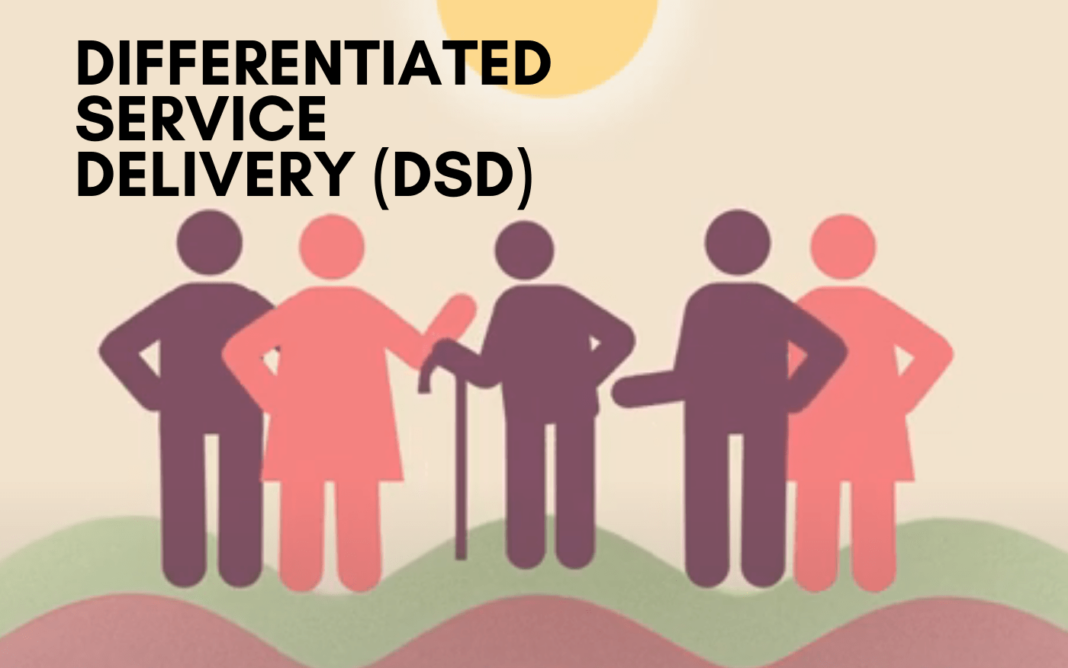Since the government introduced the Differentiated Service Delivery for HIV Treatment (DSD ART) policy in 2019, access to HIV care has taken a significant leap forward. This client-centered approach has simplified and adapted HIV services to cater to the preferences and needs of people living with HIV (PLHIV) while easing the burden on the health system.
The DSD ART model has allowed for more tailored HIV service delivery, making it easier for PLHIV to receive essential care. By categorizing clients based on their preferences, stable individuals can choose between health facilities or community-based DSD models to access their medications. This approach ensures that clients’ unique needs and expectations are met, thereby enhancing treatment adherence and overall health outcomes.
As part of the DSD implementation, Nigeria has integrated community-based DSD into its healthcare landscape. Stable clients now have the option to receive medication deliveries at their homes or pick them up from designated community pharmacies. These clients remain connected to healthcare facilities, returning when they have specific health concerns or complaints. This integration not only facilitates access to treatment but also strengthens the connection between PLHIV and healthcare providers.
The successful implementation of DSD ART has been bolstered by support from the Global Fund to fight AIDS, Tuberculosis, and Malaria, particularly through the DSD Strategic SI initiative. With guidance from the World Health Organization (WHO), the government of Nigeria has been able to expand DSD services, leading to substantial progress in the fight against HIV.
Thanks to the proactive approach of DSD, over 94% of diagnosed PLHIV are now receiving treatment. This remarkable milestone brings the country closer to achieving epidemic control, which is a crucial step in curbing the spread of HIV and reducing its impact on the population.
The integration of DSD into primary healthcare services and communities has brought HIV services closer to those who need them the most. By enhancing accessibility and client-centered care, DSD is a stepping stone towards achieving Universal Health Coverage. It not only addresses the HIV epidemic but also sets a precedent for other health services, ensuring that everyone can access essential healthcare when they need it.
DSD has played a significant role in tailoring HIV service delivery to meet the needs of PLHIV and relieve the burden on the health systems. The model’s emphasis on client preferences and expectations has made a profound impact on treatment adherence and overall patient satisfaction.
The differentiation between health facilities and community-based DSD ART models allows PLHIV to choose a care setting that suits their individual needs. This flexibility has been especially beneficial for stable clients who can now have their medications delivered to their homes or pick them up conveniently from community pharmacies. The ease of access has not only improved treatment adherence but has also reduced the need for frequent visits to healthcare facilities, thus minimizing strain on the health system.
Furthermore, the close connection between community-based DSD ART models and healthcare facilities ensures that clients receive comprehensive care and support. If clients encounter health issues beyond their regular medication needs, they are promptly referred back to the healthcare facility for appropriate medical attention. This integration fosters a seamless healthcare experience for PLHIV and reinforces the importance of community-based support in managing HIV.
The collaboration between the government and international organizations like the Global Fund and WHO has been instrumental in driving the successful implementation of DSD. With financial and technical support, Nigeria has been able to scale up DSD services across the country, bringing HIV care closer to those who need it the most.
The progress achieved in providing treatment to over 94% of diagnosed PLHIV is a testament to the effectiveness of the DSD ART model. By prioritizing client-centered care and enhancing access to treatment, Nigeria has made significant strides in controlling the HIV epidemic within its borders.
Moreover, the integration of DSD into primary health care services and communities aligns with the global vision of achieving Universal Health Coverage. By bringing essential healthcare services closer to the population, particularly the most vulnerable, Nigeria is creating a more equitable and inclusive healthcare system.
In conclusion, Nigeria’s adoption of the Differentiated Service Delivery for HIV Treatment has revolutionized access to HIV care, simplifying services while catering to the unique needs of PLHIV. With support from the Global Fund and WHO, the country is making impressive strides in the fight against HIV, nearing epidemic control and progressing towards Universal Health Coverage. The success of DSD ART serves as a shining example of how client-centered healthcare approaches can have a transformative impact on public health outcomes.



